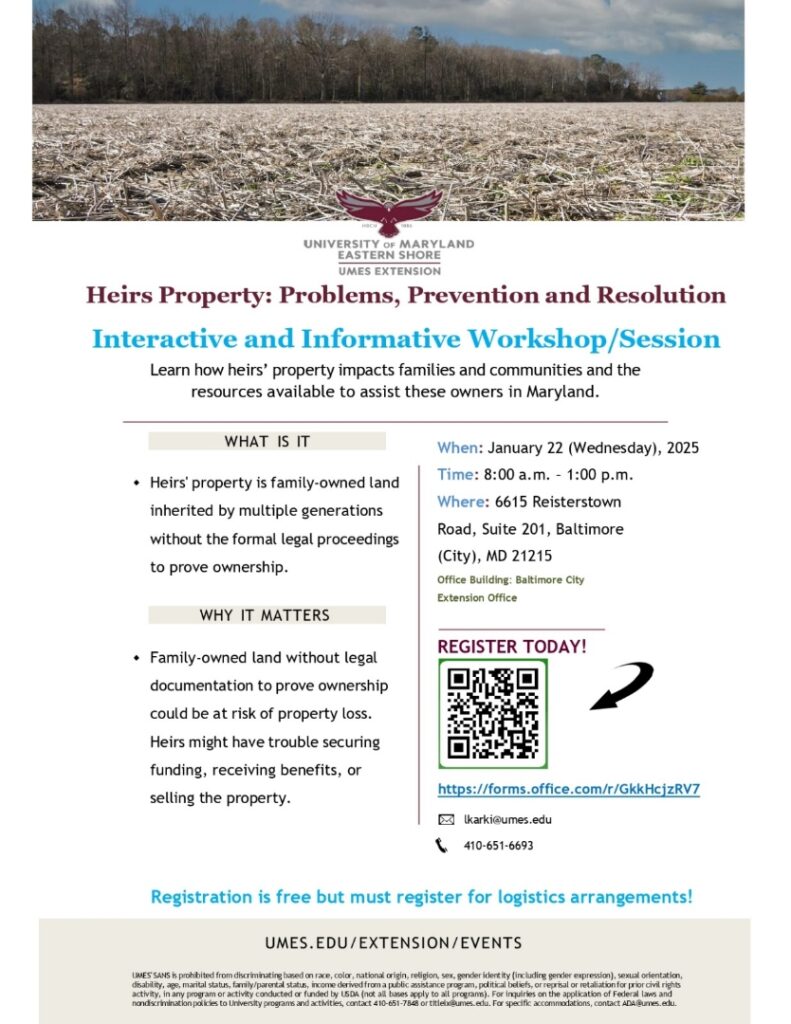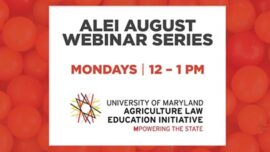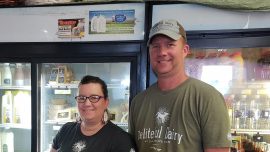March 2016 Update
2016 Hot Ag Law Topics – By Sarah Everhart, Ashley Ellixson, and Paul Goeringer
This year is poised to be a big one in agriculture with multiple forms of new technology expected to address some important issues. Here are a few of the 2016 hot topics in agriculture law that the legal specialists at ALEI will be watching:
Show More Nutrient Trading The Maryland Departments of the Environment and Agriculture released the Maryland Nutrient Trading Policy Statement in October 2015, announcing that Maryland is pursuing a cross-sector nutrient trading program in an effort to restore the water quality of the Chesapeake Bay. The Maryland Nutrient Trading program, with input from the Maryland Water Quality Trading Advisory Committee, includes issuing guidelines which will be used to initiate trades within Maryland. The Committee, which met for the first time on January 21, 2016, compromises 32 stakeholders representing a broad range of fields and interests including the regulated community, local governments, federal and state government agencies, the Maryland General Assembly, the academic and technical community, agriculture, business, and the environmental community. The Nutrient Trading Program will also include adopting regulations proposed by the Maryland Department of Agriculture that establish the requirements and standards for generation, verification, and certification of nutrient and sediment credits on agricultural lands. PMT Maryland’sPhosphorus Management Tool (PMT) regulations became effective June 8, 2015. These regulations provide a multi-year process for farmers to transition from the Phosphorus Site Index to the PMT, an updated tool that uses the latest scientific findings to identify the potential risk of phosphorus loss from farm fields and will prevent the additional buildup of phosphorus in already saturated soils. Currently, fields with the greatest risk forphosphorus runoff into waterways, as indicated by a Soil Fertility Index Value of 500 or greater, are banned from receiving additional phosphorus. To help farmers comply with the new regulations, the Maryland Department of Agriculture issued a grant solicitation on December 18, 2015 for demonstration projects from vendors, businesses, and individuals offering technologies, equipment, infrastructure, or services that can improve the management and utilization of manure and other nutrient-rich, on-farm generated waste products. Proposals are due by 4 p.m. March 18, 2016. Food Safety Modernization Act As a result of foodborne illness in staggering numbers, Congress passed the Food Safety Modernization Act (FSMA) in December 2010.FSMA amends the Food, Drug and Cosmetic Act (FDCA) and gives the FDA authority to mandate preventive-based controls across the food supply chain. This affects not only U.S. food facilities, butalso provides for greater oversight of the millions of food products entering the United States from other countries every year as well. To date, a number of the FSMA rules have been finalized, such as Preventive Controls for Human Food and Food for Animals, Standards for Produce Safety, and Foreign Supplier Verification Programs. Currently, training is being conducted to train the trainers who will then train farmers on the rules and processes FSMA requires. This year will be a year of learning and teaching with regards to FSMA. Farm Data Ownership The House Ag Committee held a public hearing October 28, 2015 to survey the role big data plays in the agriculture industry. “Big data” has become a popular term, but between the media and the technology industry, it can be quite confusing navigating what this means to farmers. While agricultural technology has presented great advancements, like improved productivity, efficiency, and a more in-depth qualitative look at unique farmland, these advancements also present challenges, including collecting, managing, utilizing, and owning data. To this point, there has been no legislative definition of farm data or, most importantly, the ownership status once that data is shared with an agricultural technology provider (ATP). This year should elicit developments in this area of the law; the ALEI team will keep everyone up to date. ALEI Presents at the 15th Annual Mid-Atlantic Women in Ag Conference – By Sarah Everhart ALEI legal specialists Paul Goeringer, Ashley Ellixson, and Sarah Everhart were among the presenters at the 15th Annual Mid-Atlantic Women in Agriculture Conference at the Dover Downs Hotel and Casino on February 11, 2016. Show More Ellixson started off the morning with a presentation to educate operators on how to reduce their exposure to liability from landowner liability claims and agritourism issues. Ellixson explained that landowners have differing legal responsibilities to protect visitors to their farms depending on the status of the visitors, be they trespassers, social guests, or customers. Ellixson also provided liability limitation strategies for U-pick and agritourism operators, including a sample liability waiver, available to operators on the ALEI website. Goeringer discussed the preparation of a farm transition or estate plan. Goeringer explained that a farm transition plan is an integral part of farm businesses, and provided strategies for developing a transition or estate plan to better prepare the next generation of farmers. Later in the day, Everhart presented on helping operators understand their property’s full potential. “The first step to understanding the full potential of property is to understand your legal ownership structure,” noted Everhart. She described the impact that easements, covenants, and, most importantly, zoning can have on the ability to fully utilize farm lands. Everhart encouraged attendees to be active participants in their local comprehensive zoning processes and to continue to monitor their property’s zoning. For more information on these issues, take a look at these publications available on the ALEI website, “Understanding Agriculture Liability-Premise’s Liability” and “Estate Planning for Maryland Farm Families.”








